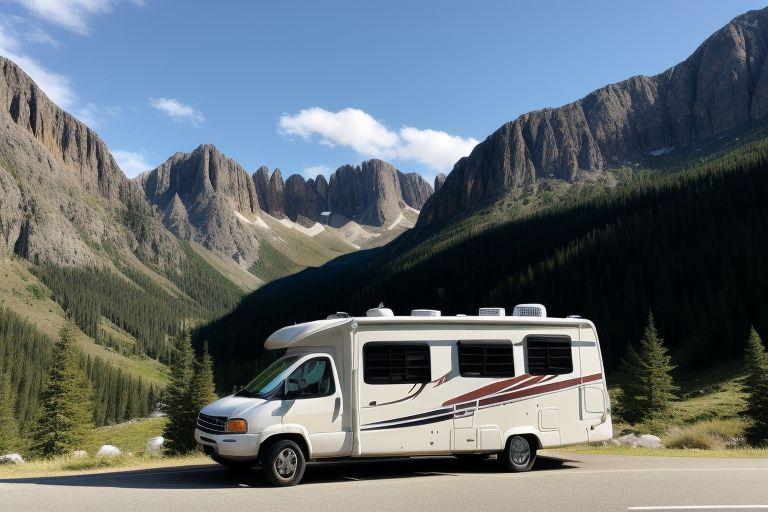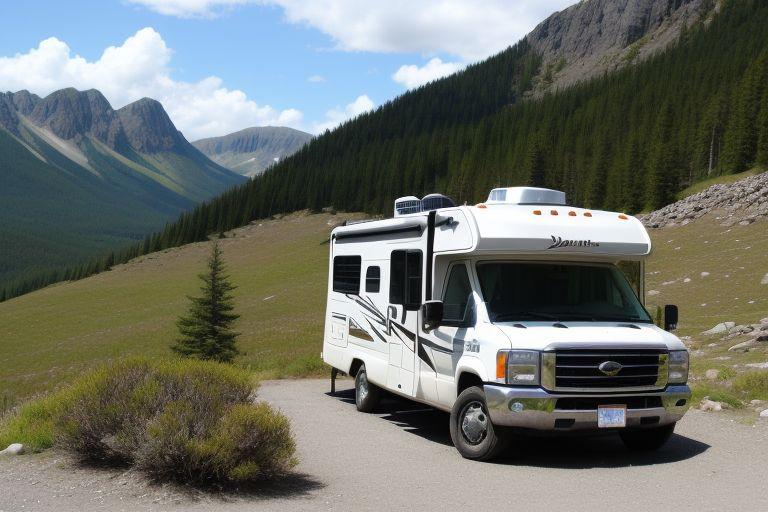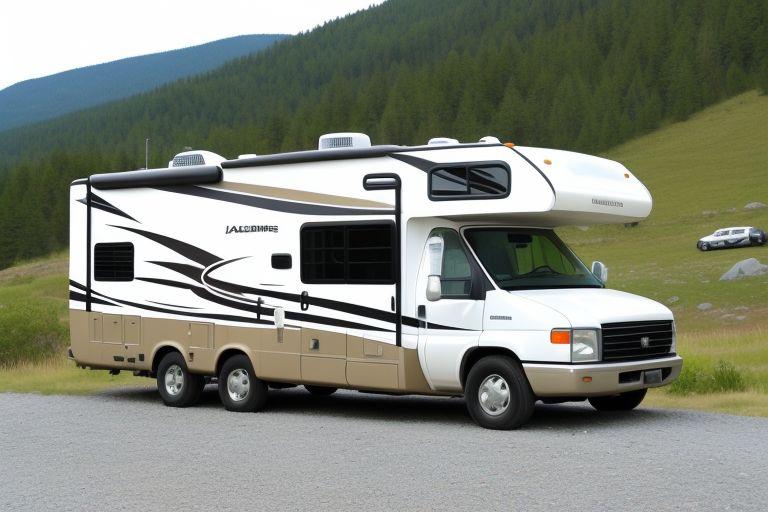
The answer often lies in tow vehicles like tow trucks and large pickup trucks equipped with powerful engines and high towing capacity. For towing heavy RVs, consider vehicles with a high tow rating and robust drivetrain. A pickup truck with dual rear wheels is ideal due to enhanced stability and strength for large and heavy trailers. Chevrolet Silverado models, for instance, are popular choices because of their advanced towing technology and powerful engines.
The drivetrain is important, with four-wheel drive providing more traction, especially on rugged terrains. Transmission type is another factor, as automatic transmissions tend to be more convenient and safer for novice drivers. Furthermore, features like automatic emergency braking, lane departure warning, and rearview camera enhance safety, making driving easier and safer when towing an RV.
A truck’s suspension system, frame durability, and braking system all contribute to its ability to handle large RVs efficiently. With integrated trailer brakes and high-tech stability control systems, dual-rear-wheel trucks offer the safest and most reliable option for RV enthusiasts.

Understanding Towing Capacity and Vehicle Specifications
To determine the type of vehicle is suitable for RV transport, you should understand towing capacity and vehicle specifications like the Gross Vehicle Weight Rating (GVWR) and Gross Combination Weight Rating (GCWR). Towing capacity is crucial, as it dictates the maximum weight a vehicle can safely tow. The GVWR defines the maximum weight of the tow vehicle itself, including passengers and cargo. GCWR is the total weight of the tow vehicle and the fully loaded RV.
Consider vehicles with a high GVWR and GCWR for heavy-duty towing. Features like trailer brakes are important to help manage the extra weight safely. Look for a vehicle with a powerful engine, as a high torque rating is crucial for hauling heavy RVs. Diesel engines often provide better towing performance due to their torque characteristics.
In terms of specs, a high tow rating ensures a vehicle can handle the demands of RV transport. Consider the own truck's towing capacity against the trailer's weight to avoid overloading. A strong transmission, effective braking system, and integrated safety features like automatic emergency braking will ensure safe RV transport.
Types of Towing Vehicles
Different types of tow vehicles are used in rv transport depending on the trailer's size and weight. Pickup trucks are the most common due to their versatility and high towing ratings. Dual-rear-wheel models are known as the best trucks for handling hazardous materials and managing the weight distribution of heavy trailers. Popular models like the Chevrolet Silverado offer specialized towing packages and features like rearview camera systems and lane-departure warnings.
SUVs, particularly full-sized models, can also be viable for smaller trailers due to their high torque engines and trailer brakes compatibility. However, they may struggle with heavier RVs.
Flatbed trucks, particularly heavy-duty models with automatic emergency braking and ample towing capacity, are best for commercial RV transport. These trucks can accommodate fifth-wheel hitches and provide better weight distribution for heavier loads.
Each type of vehicle has its pros and cons, but pickup trucks often offer the best balance of affordability, versatility, and high tow rating. Ultimately, choosing the right vehicle depends on your specific RV transport needs.

Features to Look for in a Towing Vehicle
When choosing the right vehicle for rv transport, look for essential features that enhance towing performance. Engine power and torque are crucial, particularly for big job hauls. Diesel engines provide higher torque, making them better suited for pulling heavy trailers uphill. A reliable braking system is vital, and modern trucks often include integrated trailer brake controllers to help synchronize the braking between the towed load and the vehicle.
Advanced suspension systems, such as air suspension, maintain balance and smooth handling, reducing strain on the towing vehicle. Towing-specific technologies, like trailer sway control, use braking and engine torque to correct sway before it becomes dangerous. Integrated brake controllers also help distribute braking force appropriately.
Features like rearview cameras, driver assistance systems, and safety features like blind-spot monitoring increase visibility around the RV. These technologies help drivers navigate turns and parking, avoiding obstacles and preventing collisions with cars or other drivers.
Safety Considerations for RV Towing
When towing an RV, safety is paramount. Use essential safety equipment like weight distribution hitches to ensure even load distribution and towed vehicle sway control. Regularly check tires for wear, ensure brakes are functioning correctly, and inspect hitch and chains before departure.
Proper maintenance includes ensuring trucks are equipped with adequate coolant, oil, and transmission fluid. Make sure vehicles have the capacity to safely handle the load without overheating.
To secure a camper or trailer to the vehicle, use hitch locks and chains for additional security. Balance the weight inside the RV, keeping heavier items centered. Ensure lights are connected and functioning so that other drivers can see the towed vehicle clearly.

Legal Requirements and Regulations
When towing an RV, it’s crucial to follow legal requirements for rv transport. Drivers need valid vehicles licenses, and for heavier trucks, a special commercial license might be required. Check state-specific regulations, as some states require additional permits based on weight or if hazardous materials are being transported.
Insurance is important for both the towed and towing vehicle. Ensure your policy covers big job towing to protect against accidents. Comprehensive RV insurance that includes towing coverage is advisable for drivers embarking on long trips.
State regulations may vary, affecting drivers based on the size of the camper or trailer. Be aware of driver fatigue rules, weight limits, and road restrictions to ensure full compliance, preventing legal and safety issues.
Conclusion
Choosing the right vehicle for RV transport requires understanding key features like towing capacity, engine power, and advanced safety systems. We discussed how pickup trucks equipped with dual rear wheels and high tow ratings excel in handling large RVs, especially when equipped with features like trailer sway control and integrated brake controllers. Understanding Gross Vehicle Weight Rating (GVWR) and Gross Combination Weight Rating (GCWR) is essential for determining the right vehicle to tow your camper or travel trailer.
Safety features like automatic emergency braking and rearview cameras are critical for both new and experienced drivers to avoid hazards and maintain vehicle stability. Equally important are the legal requirements, licenses, and insurance considerations necessary to comply with state and federal regulations.
A1 Auto Transport provides a hassle-free and reliable solution for your RV transport needs. With a fleet of well-equipped tow vehicles and experienced drivers, they can transport RVs of any size, offering secure loading, expert handling, and insurance coverage to ensure your vehicle reaches its destination safely. Trust A1 Auto Transport's expertise for a seamless and compliant RV shipping experience. Visit their website here to get a free quote and enjoy a secure, efficient transport journey with professionals who know the road ahead.






 Share on Facebook
Share on Facebook Share on LinkedIn
Share on LinkedIn Share on Twitter
Share on Twitter




 Google
Google  Instagram
Instagram  Trustpilot
Trustpilot 



